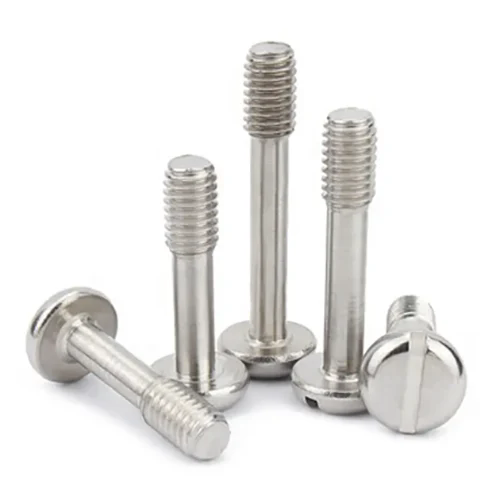Slotted Screws: A Timeless Classic in Fastening Solutions
2025-04-09
In the world of hardware and fasteners, the slotted screw holds a special place. As one of the oldest and most recognizable types of screws, it has been used for centuries in everything from furniture and woodworking to machinery and electronics. Despite the rise of more modern screw head designs, the slotted screw continues to be a reliable and widely used choice across many industries.
What is a Slotted Screw?
A slotted screw is a type of screw with a single straight slot across the head. This simple design allows it to be driven using a flat-blade or slotted screwdriver. It comes in various sizes, materials, and finishes, making it versatile enough to be used in a wide range of applications.
A Simple and Practical Design
The beauty of the slotted screw lies in its simplicity. It is easy to manufacture and has no complex features, which makes it cost-effective and universally compatible. Almost every toolbox contains a flat-head screwdriver, ensuring that slotted screws can be installed or removed without any specialized tools.
Common Uses
Slotted screws are commonly found in woodworking, vintage machinery, electrical outlets, and decorative hardware. Their traditional appearance also makes them a popular choice in restoration projects or applications where an antique or classic look is desired. They are often used in household products, switch plates, and furniture where their understated design blends well with the overall aesthetic.
Strengths and Limitations
While slotted screws are valued for their simplicity, they do have some limitations. One of the main drawbacks is that the screwdriver can easily slip out of the slot, especially if not aligned properly. This can lead to damage to the screw head or surrounding surface. Because of this, slotted screws are generally not preferred in high-torque or high-speed power tool applications.
Despite this, for manual installation, particularly in delicate or detailed work, slotted screws offer a level of control and precision that some other screw types lack. Their design also reduces the risk of overtightening and damaging softer materials.
Why They Still Matter
Even with the availability of more advanced screw head designs like Phillips, Torx, or hex, slotted screws are still widely produced and used. Their traditional look, ease of use, and compatibility with basic tools make them a dependable choice for specific tasks. In environments where power tools are not used, or where visual appearance matters, slotted screws remain a top option.
Conclusion
Slotted screws may seem old-fashioned compared to modern alternatives, but their continued use proves their lasting value. They represent a perfect balance of form, function, and simplicity. Whether you are repairing a vintage item, building a wooden frame, or simply need a screw that gets the job done with minimal fuss, the slotted screw is a classic solution that continues to stand the test of time.



